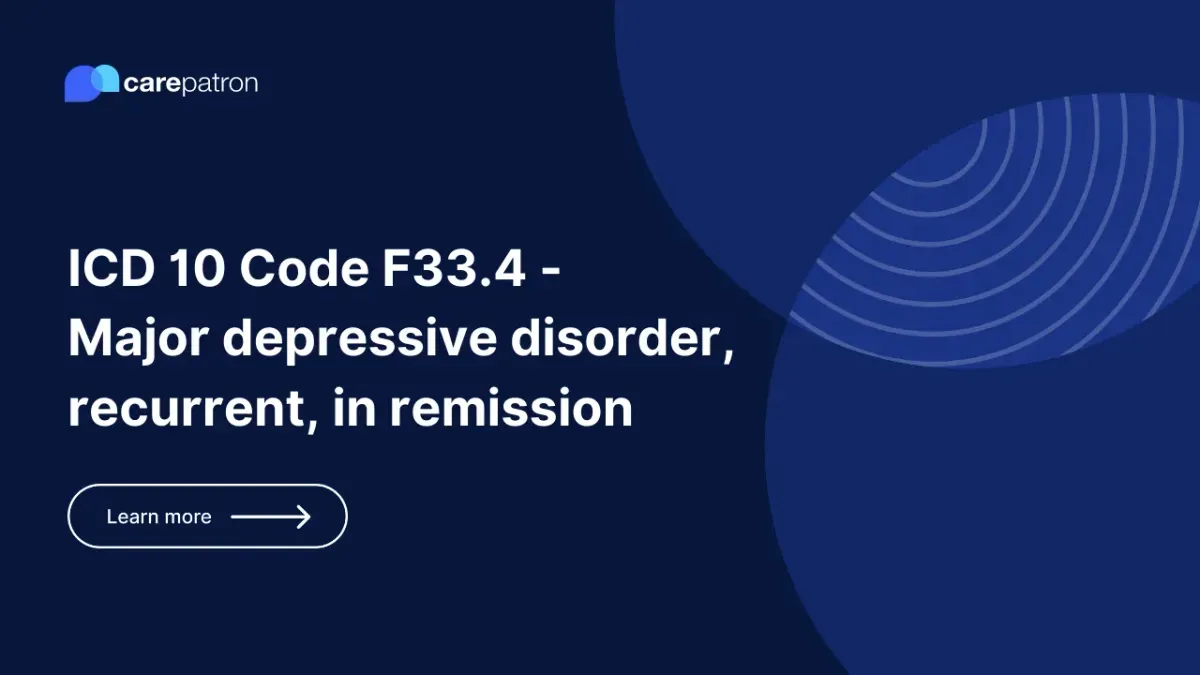
F33.4 – Major Depressive Disorder, Recurrent, in Remission
Learn about the ICD-10-CM code F33.4 - Major depressive disorder, recurrent, in remission, through this guide.
Use Code
Commonly asked questions
"In remission" means the individual is not currently experiencing an entire episode of the disorder, though some symptoms may still be present.
Not necessarily. Ongoing treatment might be recommended to prevent future episodes.
"Recurrent" means the individual has experienced at least two depressive episodes.
EHR and practice management software
Get started for free
*No credit card required
Free
$0/usd
Unlimited clients
Telehealth
1GB of storage
Client portal text
Automated billing and online payments
